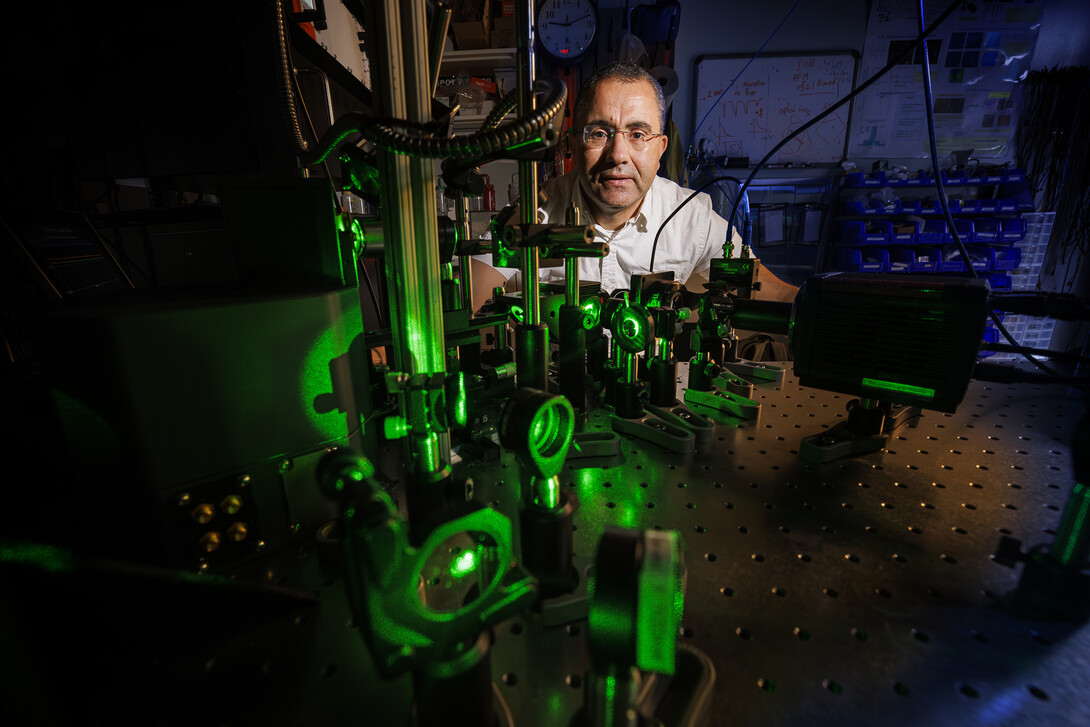
Abdelghani Laraoui, assistant professor of mechanical and materials engineering, is collaborating with faculty from Jackson State University on a three-year, $800,000 project to help train dozens of African-American youth while developing America's expertise in quantum sensing.
The project, Collaboration on Quantum Sensing Research and Education for Minority Participants, is funded through the National Science Foundation Expanding Capacity in Quantum Information Science and Engineering, or ExpandQISE, program.
The project is launching in October, and will mentor 80 graduate, undergraduate and K-12 minority participants from Jackson State, nearby community colleges and K-12 schools during its three-year term. The goal is to provide comprehensive training in quantum biosensing through QISE coursework and use of diamond quantum microscopy — a specialty of Laraoui, who is a research group leader with Nebraska EPSCoR's EQUATE collaboration on quantum materials science.
Specifically, this research focuses on the development and application of quantum sensing technology by using nitrogen vacancy centers in diamond for real time monitoring of cytochrome-c release during cell apoptosis. The long-term outcome of this research is to establish scientific design criteria for quantum material-based multifunction compatible sensors for in vivo imaging of cytochrome-c — a fundamental advance for quantum information technologies.
This Nebraska-Mississippi project aims to:
- Improve research infrastructure in quantum sensing capability at JSU by developing diamond quantum microscope,
- Develop collaborative MS/PhD advising program for underrepresented students with a strong focus on quantum sensing,
- Initiate summer research for undergraduates program at Jackson State for underrepresented participants in QISE research and education,
- Builds quantum information science and engineering research and education program for K-12 participants, and
- Design a new quantum information science and engineering course with an emphasis on the hands-on and project-based learning modules.
As an HBCU and the only urban university in Mississippi, Jackson State has a unique opportunity to attract and retain Black students in quantum information science and engineering research and education. African Americans represent 98 percent of the minority population in Mississippi and 37% of the state's citizens, giving it the highest concentration per capita of this minority group in the nation.
This project is co-funded by NSF's Historically Black Colleges and Universities Undergraduate Program, which provides awards to strengthen undergraduate education and research in science, technology, engineering, and math at HBCUs. This award was jointly funded by NSF's Directorate for Engineering; Division of Civil, Mechanical and Manufacturing Innovation; NSF's Directorate for Mathematical and Physical Sciences; and NSF's Office of Strategic Initiatives, which includes EPSCoR (Established Program to Stimulate Competitive Research) projects to promote geographic diversity in STEM funding.







